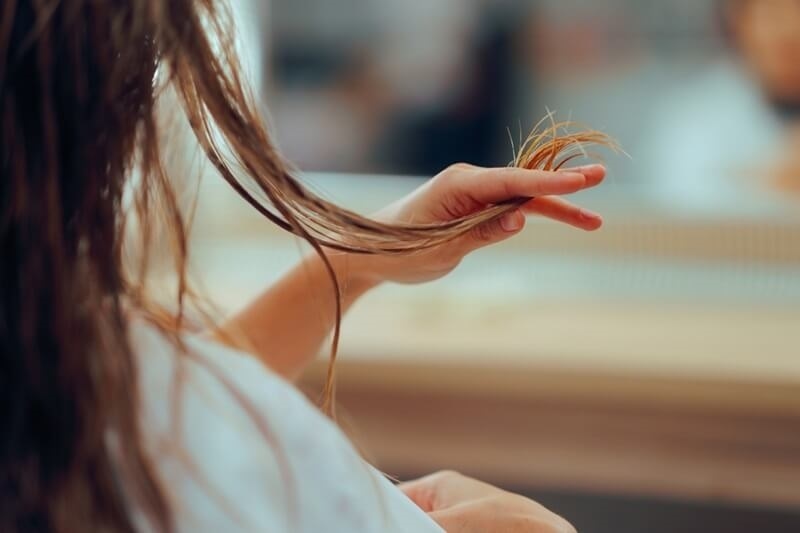
Hair breakage is a common concern for people with all hair types. Whether someone has curly, straight, or wavy hair, the constant snapping, splitting, and thinning can be pretty frustrating. Understanding how to prevent hair breakage is the first step to achieving healthy, strong hair. Understanding the potential for hair breakage, best practices for hair protection, and other recommended practices can help reduce damage and improve hair health.
In this guide, we will cover everything you want to know about breakage hair—what it is and the causes, precautions to take, professional recommendations, treatment options, and much more.
By the end, you will possess the complete guidelines for achieving strong, stunning hair that doesn't snap.
Hair breakage prevention begins with knowing why hair gets weakened in the first place. Hair is made of keratin proteins, and when its structure gets damaged, strands can snap easily. These are the most critical steps to keep hair strong:
Act Early. By combining knowledge of hair breakage causes with regular care, you can prevent hair from snapping before it becomes more troublesome.

It is essential to understand what causes hair damage to prevent it. The following are the most common causes of damaged hair.
The majority of damage is accrued by using excessive heat from tools such as blow dryers, curling wands, or flat irons, which dry out the hair, removing its natural moisture content and weakening it.
Heat causes the hair cuticle to dry out, leading to broken strands.
Hair color treatments, bleaching treatments, perming, or chemical straightening processes alter the structure of the hair. As with some of the other methods mentioned, when these chemicals are used multiple times, the reactants loosen the keratin bonds, increasing the levels of breakage in the hair.
An example of a mechanical process would be using too-tight elastics, braiding consistently, or regularly combing hair with a coarse brush. All of these things can add strain to the hair shaft over time, resulting in split ends or broken hair.
Exposure to sunlight, wind, and air pollution can cause the hair cuticle to crack, leaving it feeling dry and coarse, which can lead to breakage as well.
A poor diet lacking essential vitamins and minerals (e.g., biotin, iron, omega-3 fatty acids) can lead to weaker hair and increased breakage over time.
By determining which of these reasons of hair breakage can be attributable to you, you can practice specific techniques to protect your hair.
Strengthening the hair comes from both inside the body and outside the body.
These strengthen hair tips are effective at preventing breakage and keeping hair healthy:
Use sulfate-free shampoo to allow your hair's natural oils to remain. Conditioning every day helps the cuticle to stay smooth; this will help prevent snapping.
A daily deep conditioning treatment that contains protein will repair hair fibers and replenish moisture. Look for ingredients such as keratin, argan oil or shea butter.
Use heat tools less or always apply a heat protectant spray prior to styling. Low heat also accumulates damage in the long run.
Frequent trims every 6-8 weeks cut off split ends and halt hair breakage traveling up the hair shaft.
Gently detangle hair with wide-tooth combs or fingers, beginning at the ends and moving towards the roots. This eliminates excess tension and breakage.
Avoid wearing tight braids or ponytails; your hair won't appreciate being pulled tight. Instead, wear looser styles such as braids or buns, which take the tension off the scalp and strands of the hair.
Minimizing damage to your hair involves creating habits specifically to protect your hair each day. Here are a few good options to minimize damage to your hair :
By regularly applying these steps to reduce hair damage, hair grows stronger and less susceptible to breakage in the long run.
If you catch hair snapping repeatedly, it's time to act. Here's how to prevent hair snapping:
Protein treatments fortify brittle hair and restore elasticity. Use weekly protein masks if your hair is weak or flat.
Natural oils, like coconut, argan, and jojoba, will penetrate the shaft of the hair and deliver moisture that diminishes friction and prevents breakage.
Consider limiting the styles that pull at your roots (buns, ponytails, cornrows, etc.). Even temporary pressure on your hair could cause micro breaks, and compounded, this can be contributor to longer-term breakage.
Always brush gently, from the ends of hair and upwards, and with a bristle hairbrush. Do not brush wet hair, as wet hair can more easily snap.
Consider trying a keratin treatment or a protein mask at the salon by a stylist. These tend to restore strength and time, improve texture.
Having healthy hair is not always about what you put on it, as it may also include your lifestyle! Important things to think about are:
These two changes, along with other lifestyle modifications, promote topical management and can significantly reduce hair breakage.
If you appreciate securing hair care from natural sources, here are several ways to keep your hair healthy and strong:
These natural treatments work effectively in conjunction with one another if they are used appropriately and as part of a suitable hair care regimen.
Choosing the right hair products is significant for maintaining strong hair. Look for the following products:
Always steer clear of sulfates, alcohol, or synthetic perfumes in products, as they are known to cause hair weakness and breakage.
Suppose you're still experiencing hair breakage despite taking good care of your hair. In that case, it may be caused by other health-related issues, such as hormonal imbalances, scalp infections, or a lack of essential vitamins and nutrients. The best way to confirm any of these potential causes is to see a dermatologist or trichologist, who will provide a professional assessment of your hair breakage during your visit.
Preventing hair breakage involves knowledge, daily hair care, and adopting a lifestyle that incorporates mindful habits. Here is the essence of preventing hair breakage:
Making these strategies a habit will promote hair and hair health while providing hair with an overall increased tolerance to breakage.
This content was created by AI